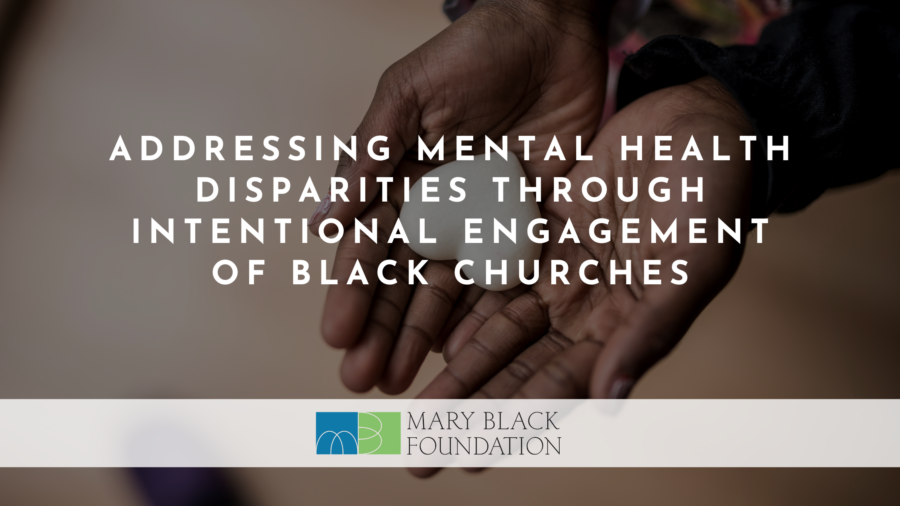Addressing Mental Health Disparities Through Intentional Engagement of Black Churches
Mental health is a public health issue. Since the Black Church is seen as the pillar of the community, engagement of the Black Church is an opportunity to close the mental health disparities gap. The church has the opportunity to convey a message of hope and healing and to create “Mental Wellness Friendly” spaces for those dealing with mental health challenges.
Rev. Dr. Mekeshia Bates is working in partnership with Spartanburg’s Faith Initiative to End Child Poverty to educate congregations and help activate this work in Spartanburg’s Black Churches. Rev. Scott Neely, Director of the Faith Initiative to End Child Poverty said,
The goal of the Faith Initiative is to activate the gifts of the faith community to help end child poverty in Spartanburg. Dr. Bates’s extraordinary gifts for leadership, organization, and well-implemented research powerfully fuse with congregational life to make behavioral health services much more available for every person in our community. Her work is helping us all connect and share resources in new, vitally important ways, and we give thanks.
Current State of Mental Health
Due to the current health, economic, and racial issues in the United States, mental illness has magnified. Here are the facts:
Mental Health in the U.S.
- Statistically, one in five Americans are affected by mental health issues.
- More than half of adults diagnosed with a mental illness do not receive treatment.
- That is approximately 27 million adults in the U.S. who do not receive needed treatment.
- In June 2020, a survey indicated that 40.9% of adult respondents reported adverse mental or behavioral health outcomes related to COVID-19.
Mental Health in S.C.
- 18.3% of all South Carolinians reported a diagnosable behavioral health disorder in 2018.
- Suicide is the third leading cause of death among those 10 to 24.
- Suicide is the eleventh leading cause of death among all age groups.
Crisis for African Americans
In African Americans, mental health is a public health crisis. The reality is:
- The generational effects of slavery, sharecropping, and race-based exclusion from health, educational, social, and economic resources translate, into socioeconomic disparities in the African American population.
- Mental health statistics show a clear correlation between socioeconomic disparities and mental health.
- Demographics contribute to the difficulty of access to culturally competent mental health care services.
- Stigma and lack of access to culturally competent mental health care have become extreme barriers.
- In 2020 the Substance Abuse and Mental Health Services Administration (SAMHSA), identified the COVID-19 pandemic as highlighting the racial and ethnic disparities in access to behavioral health care.
- A survey conducted found that those living in the South, ages 18 to 24, and Black and Latino participants are experiencing the most severe behavioral health impact because of COVID-19.
A Solution
The Black Church is in a unique position.
- SAMHSA suggested engaging faith leaders and places of worship as opportunities to close the mental health disparities gap.
- The Black Church is seen as the pillar of the community.
- In the past, those with mental health challenges felt guilt and shame because their faith was questioned.
- Many church leaders are limited in their counseling abilities because they are not trained behavioral health professionals.
- The church has the opportunity to convey a message of hope and healing for those with mental health challenges by serving as a safe space and partnering with licensed behavioral health professionals.
How You Can Help
To contribute to this project, gifts may be made through our fiscal sponsor, First Presbyterian Church designated in the memo for “Behavioral Health Programming in Black Churches.”
Give online HERE
or via mail to:
First Presbyterian Church, 393 E. Main St., Spartanburg, SC 29302 ATTN: Faith Initiative
Want to join the conversation?
Faith Initiative to End Child Poverty Advocacy
Rev. Dr. Mekeshia Bates
drbates@giftofdreams.org

